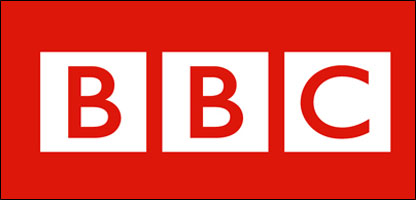Friday 26th September 2014Crowdfunding the Arts Ramps Up Traditionally, the art world has existed on almost the opposite of crowdfunding. At least in the European tradition, an artist would do his best (traditionally, the European masters have largely been men, as unfair as that is) to impress a single wealthy patron who would then undertake to fund all of the artist's subsequent costs - within reason, of course. This would often extend to providing food, lodging and materials in exchange for the first bite at the apple, and the right to request any sort of commission that the patron may wish to have undertaken. In modern terms, the closest analog would likely be a monthly retainer, although lawyers and the like often have many clients that pay retainers.
Traditionally, the art world has existed on almost the opposite of crowdfunding. At least in the European tradition, an artist would do his best (traditionally, the European masters have largely been men, as unfair as that is) to impress a single wealthy patron who would then undertake to fund all of the artist's subsequent costs - within reason, of course. This would often extend to providing food, lodging and materials in exchange for the first bite at the apple, and the right to request any sort of commission that the patron may wish to have undertaken. In modern terms, the closest analog would likely be a monthly retainer, although lawyers and the like often have many clients that pay retainers.
Recently, however, we discussed the change in this dynamic that originally begun with the impressively novel crowdfunding site named Kickstarter. For those that haven't yet heard of the site, the essential premise of the site is that people can post project proposals online, and have it funded by a large number of individuals making small contributions, as opposed to a single wealthy patron bankrolling the entire project. While the previous discussion was limited to art galleries in the UK, this time around the effort is being undertaken in cooperation with what is arguably the world's most popular art fair (another model which is dramatically shaking up the art world), Art Basel. Known for hosting wildly successful art fairs originally in Basel and then expanding to the somewhat unlikely satellite locations of Hong Kong and Miami Beach, Art Basel has started a formal partnership with Kickstarted in the hopes of encouraging viewers to support non-profit art groups using the crowdfunding site and model.
Named the Art Basel Crowdfunding Initiative, the project has already begun it's first foray into the crowdfunding scene with four projects, which cover and impressively diverse spectrum of content and funding requirement. SculptureCenter, in New York, is hoping to raise $12,000; Gasworks in London is hoping to raise roughly $65,000; Society for the Activation of Social Space through Art and Sound (a terrible name, it must be said) is hoping to raise $5,000 for a concert series in Los Angeles; and the 4A Center for Contemporary Asian Art in Sydney, Australia is hoping to raise $18,000. Here's to hoping that the crowdfunding model can provide the much-needed support these projects require to get off the ground!
0 Comments
Friday 06th June 2014Crowdfunding Galleries Unless you've been living on the Moon for the last few years, you've probably run across the term 'crowdfunding'. If you haven't heard of it before, the concept is actually extremely simple, albeit incredibly powerful. It uses a 'pay-what-you-can' model distributed over a large number of potential customers to acquire funding for projects. There are often various tiers of contributors, so that those who contribute more to a project get more out of it than those who make the minimum contribution.
Unless you've been living on the Moon for the last few years, you've probably run across the term 'crowdfunding'. If you haven't heard of it before, the concept is actually extremely simple, albeit incredibly powerful. It uses a 'pay-what-you-can' model distributed over a large number of potential customers to acquire funding for projects. There are often various tiers of contributors, so that those who contribute more to a project get more out of it than those who make the minimum contribution.
Tuesday 25th March 2014The BBC Rededicates Itself to the Arts The BBC is one of the most beloved British institutions, one that has reached hearts and minds of millions of citizens for nearly 100 years. Over the course of that long life, it has occasionally varied in its goals, depending on the view its directorship takes of the current cultural climate and how the BBC fits into that milieu. Naturally, the BBC News and the World Service are what made the name for the corporation in the early days, but as the media landscape changes, the institution is taking steps to ensure that it stays relevant. In a boon for art lovers everywhere, the current Director-General of the BBC, Tony Hall (who also happens to be Baron Hall of Birkenhead), has recently decided that the BBC's role in the art world should be stepped up several notches.
The BBC is one of the most beloved British institutions, one that has reached hearts and minds of millions of citizens for nearly 100 years. Over the course of that long life, it has occasionally varied in its goals, depending on the view its directorship takes of the current cultural climate and how the BBC fits into that milieu. Naturally, the BBC News and the World Service are what made the name for the corporation in the early days, but as the media landscape changes, the institution is taking steps to ensure that it stays relevant. In a boon for art lovers everywhere, the current Director-General of the BBC, Tony Hall (who also happens to be Baron Hall of Birkenhead), has recently decided that the BBC's role in the art world should be stepped up several notches.




